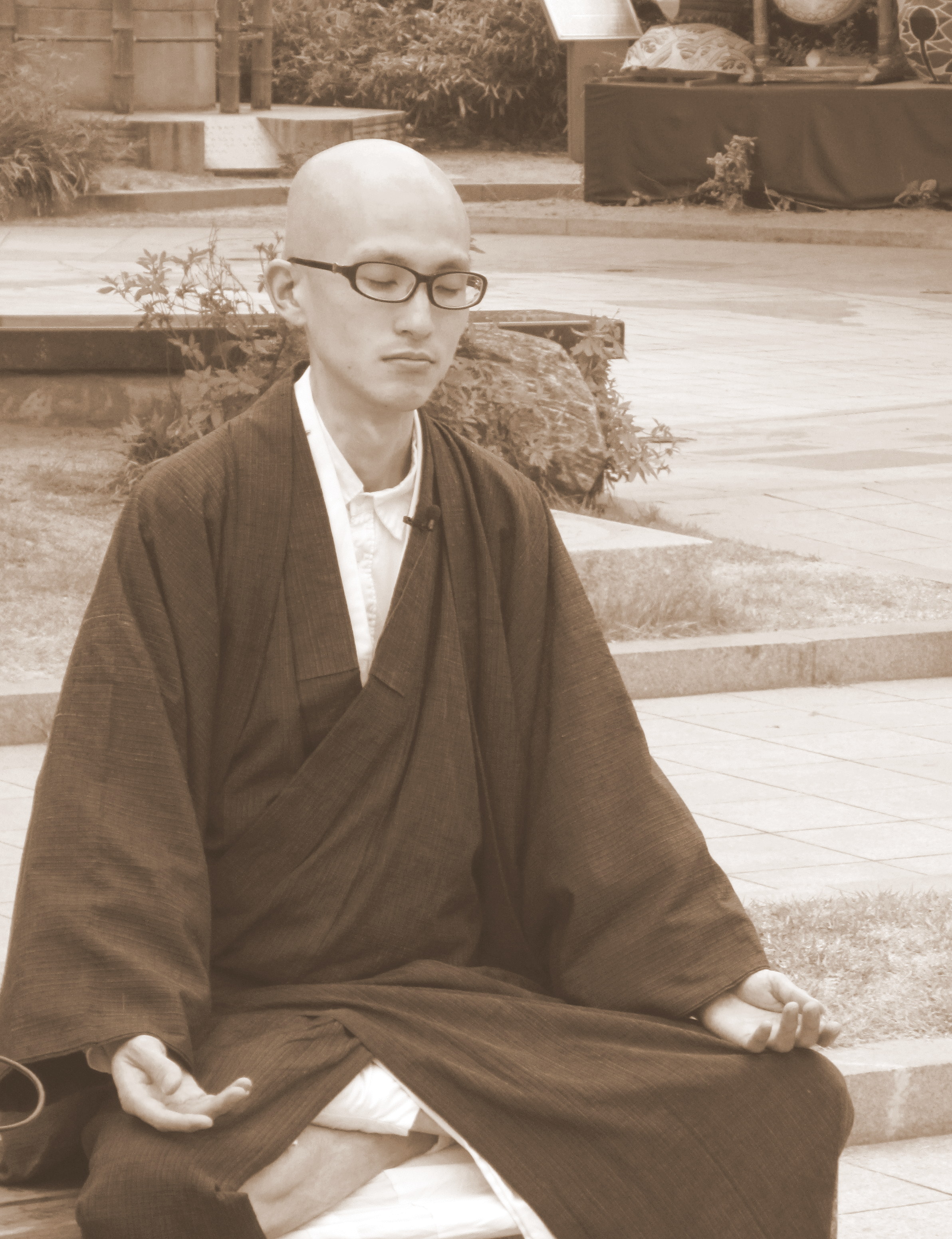
The year is now half over, making it a logical time to take stock of any goals or resolutions set out earlier in the year. I didn’t make any New Year’s resolutions back in January, but a few months ago, I did make a resolution to start meditating. My goal was modest – a mere two minutes each day. Unfortunately, two minutes a day seems to be about two minutes more than I am capable of.
Having read of the health and wellbeing benefits that meditation can offer, and wanting to find new ways to calm my “monkey mind” and expand the scope of my spiritual practices, I decided to make meditation a routine – though modest – part of my day. And I have failed miserably.
Though meditation as a spiritual practice is not completely foreign to me and I have done my own informal form of mantra meditation on occasion, a regular meditation routine has always eluded me. When I try to focus on slow breathing, our dogs start barking. When I try to clear my mind, random thoughts begin popping into my head. When I try to calm my body, the jitters and fidgets jump into me. And that isn’t even taking into account the biggest challenge of all – getting started in the first place.
I doubt that I am alone in my lack of motivation and concentration struggles; these all seem to be common challenges for meditation newbies. In fact, lack of motivation is a prime deterrent to the satisfaction of any number of resolutions – from exercise and weight loss to quitting smoking and watching less television.
During the three months since I made my resolution, I have tested out a few techniques I had heard about from other more experienced meditators. I tried the finger touch technique – inhaling and exhaling slowly while touching my thumb to each finger on the same hand. I tried the advice of meditation expert Thich Nhat Hanh to recite a simple chant, such as “breathing in-breathing out” while meditating. But, largely, I have followed the age old art of procrastination, telling myself that I would give it a try tomorrow.
I am not ready to give up my resolution to make meditation a regular routine, however. The health benefits that meditation can offer on one’s body and mind alone are worth the effort, not to mention the enhanced spiritual development that meditation might create. For instance, research shows that meditation can increase brainwave activity linked to relaxation, lower anxiety, expand mental capacities for compassion and empathy, decrease blood pressure, increase lung capacity, decrease blood sugar levels, and kick your immune system into high gear – all of which sound pretty good to me.
Given that my first attempt at routine meditation was largely a disappointment, perhaps I need to renew my goal with revised expectations in mind. You see as disappointing as my attempts (or lack of attempts!) have been thus far, it hasn’t been a complete failure. I did learn two things in my futile attempts at meditation. First, I learned that meditation is a practice and, therefore, it requires just that – practice. It is not enough to simply decide that I want to meditate effectively and magically the skill will arise. Meditation requires patience, effort, and repetition, which means that I won’t make any progress without getting over my first hurdle of putting it off for another day.
My second realization came through an understanding and acceptance that meditation is a personal practice and something that I must undertake at my own pace and in my own way, rather than following the techniques prescribed by others. I have written about the meditative prayer that I recited on my wedding day, and I have continued to call on this meditative prayer on a number of other occasions. This personal mantra cannot be discounted and discredited as a therapeutic and spiritual form of mediation merely because it is not touted by the meditation gurus.

Similarly, I derive certain meditative effects from music. For instance, when I listen to certain music, a calmness washes over me that is somewhat akin to a religious experience, as if I were submerging myself in a clear pool of water surrounded only by the tiny air bubbles that race to the surface. As bizarre and unique as this image and analogy may seem, it is personally very meditative, therapeutic, and cathartic and I suspect that many of us feel the calming effects from music.
Perhaps I need to begin “Meditation – Take Two” with an even more modest goal of one minute a day. Or perhaps I simply need to practice meditation more often. But, regardless of the quantity and frequency of meditation, one thing is certain. As Thich Nhat Hanh advises in his book “You Are here,” meditation should be practiced with joy and pleasure, rather than viewed as one more chore on my to-do list. For me, that means simple meditative prayers, music, and modest expectations. Perhaps with a little practice, a lot of patience, and the use of more personal techniques, the joy and pleasure of meditation will elude me no more.
Where do you stand on your resolutions – New Year’s or otherwise? Do you meditate? If so, what personal meditation techniques do you enjoy?

9 Comments
While I don’t meditate, I can relate to your feelings about some music. I can get lost in it, as I also can in a good book. Maybe, as you said, that’s the way to start, being more mindful or taking the time to “get lost.” I’m impressed with this resolution. Even the few minutes of meditation in the beginning of yoga are very hard for me some days.
I guess I’m one of the few who have achieved my New Years Resolution. I learned to swim! In fact just this past weekend I jumped off a boat into a lake with no life jacket AND without hyperventilating!
WOW! Good for you!!
No meditation here. But I would recommend yoga. Body. Mind. Soul.
I think meditation is great. I am someone who suffers from anxiety, so meditation is perfect for a person like me. But I haven’t thought about it in years. Maybe I’ll revisit the idea. I do try, however, to be conscious of my breathing. So many of us don’t even realize that we’re taking short, shallow breaths. To oxygenate our organs, we need to take big, deep breaths. Anyway, good food for thought. Thanks!
I find your writing meditative. It always makes me think. I’ve been wanting to embark on a meditation crusade, learn how to do it. But haven’t yet made the leap. I attend 3-4 yoga classes a week, and that includes breathing exercises which are meditative. I still find myself anxious, but probably far less so than I would be without the yoga. Definitely meditation is good for the body and soul. Even in small bursts.
Awww, thanks! Your comment made my day! I have tried yoga, but just can’t seem to get into it. I really wish that I could because it seems wonderful for body and soul.
Hi Christine,
I’m so interested to have found your blog (through a trail of Leibster awards) – i think we have a lot in common: social justice, academic past, interest in buying/eating local and more. I’ve been clicking around trying to figure out where to comment and had to stop here because I also made a resolution to meditate this year. My ambitions pretty much went the direction of yours. Someone recommended a book I found really helpful: True Meditation by Adyashanti. I only recommend it because his approach to the problem of focus is very different from most and it helped me alot. He says to let your thoughts wander, just don’t engage them. Like you’re sitting on the side of a river watching your thoughts go by. That idea really set me free in my short lived meditation career. You’ve motivated me to give it another try. It’s been months since I last meditated. Your blog looks great. 🙂
Thank you! Thank you for visiting and thank you for your kind words. I really like your tip about letting the thoughts float past. Genius! I’ll have to give that a try.
Pingback: Dream Big List